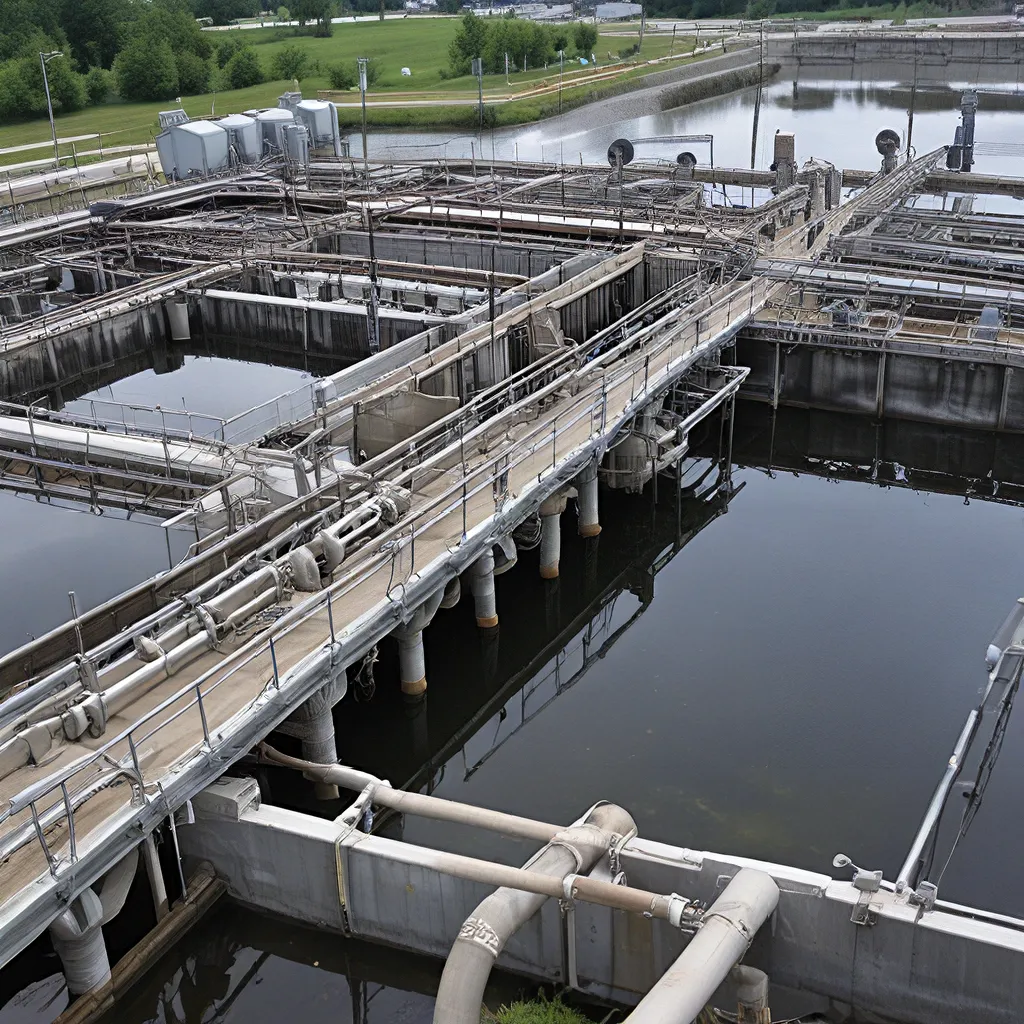
As the world grapples with the pressing challenge of environmental sustainability, the role of wastewater treatment plants has become increasingly crucial. These unsung heroes of the modern infrastructure play a vital part in safeguarding our precious water resources and protecting the delicate balance of our ecosystems. But in an era of constrained budgets and rising energy costs, the pressure is on to find innovative ways to optimize the efficiency of these essential facilities.
Unlocking the Potential of Existing Assets
One of the key strategies in the pursuit of enhanced operational efficiency is to maximize the potential of our existing wastewater treatment infrastructure. Rather than resorting to costly new construction, experts are exploring creative ways to debottleneck and re-rate our current plants, coaxing more performance out of the assets we already have in place.
Through a collaborative workshop attended by industry leaders, a team of experts have been developing protocols for evaluating the most common unit operations within a municipal treatment plant. The goal? To identify opportunities to extend the capacity and/or performance of existing facilities without the need for major capital investments.
“It’s all about working smarter, not harder,” explains Jane, a seasoned plant manager with over two decades of experience. “We’re not looking to reinvent the wheel here, but rather to uncover the hidden gems – the process optimizations, the energy-saving measures, the smart automation – that can unlock a whole new level of efficiency.”
Tapping into the European Expertise
As they navigate this challenge, the team has turned its gaze across the Atlantic, drawing inspiration from the European experience with energy reduction and best practices at wastewater treatment plants. By studying facilities with a proven track record of successful process optimization, they’ve been able to identify a wealth of practical, real-world solutions that can be adapted and deployed in North American facilities.
“The Europeans have really been leading the way when it comes to making their treatment plants more efficient,” notes John, a process engineer who has been closely involved in the research efforts. “They’ve tackled everything from sludge management to process control automation, and we’re eager to learn from their successes and missteps.”
One key area of focus has been the Utility of the Future concept, which redefines the wastewater industry’s role beyond just protecting public health and the environment. “These days, it’s not enough to simply treat the water and discharge it,” explains John. “We need to be actively managing our limited resources, extracting value from the waste streams, and exploring ways to make our plants more self-sustaining.”
Harnessing the Power of Data and Automation
As the team delves deeper into the challenge of operational optimization, they’ve come to recognize the transformative potential of data and automation. By leveraging the latest advancements in sensor technology, process control algorithms, and predictive analytics, wastewater treatment plants can unlock a whole new level of efficiency and responsiveness.
“Gone are the days of the old-school, manual-driven plant,” says Jane. “Now, we’re talking about real-time monitoring, adaptive control systems, and predictive maintenance – all of which can help us anticipate and address issues before they become problems.”
But the journey towards a data-driven, automated future is not without its challenges. “We’re dealing with complex, interconnected systems, and the sheer volume of data can be overwhelming,” admits John. “It’s not just about installing the tech – it’s about building the right analytical frameworks, training the workforce, and integrating these solutions seamlessly into our existing operations.”
The Importance of Energy Optimization
As the wastewater industry grapples with the realities of climate change and the need for greater sustainability, the optimization of energy consumption has become a top priority. “Energy is one of our biggest operational expenses, and it’s also a major contributor to our carbon footprint,” explains Jane. “That’s why we’re laser-focused on finding ways to reduce our energy usage, generate our own renewable power, and maximize the efficiency of our energy-intensive processes.”
The team has been studying a range of energy-saving strategies, from improving aeration systems and optimizing pumping operations to harnessing the power of biogas and exploring the potential of solar and wind energy. “It’s not just about cutting costs – it’s about future-proofing our plants and doing our part to mitigate the impacts of climate change,” says John.
Embracing a Culture of Continuous Improvement
Ultimately, the path to enhanced operational efficiency in wastewater treatment plants is not a one-time sprint, but rather a marathon of continuous improvement. “It’s a never-ending journey,” admits Jane. “Just when you think you’ve got it all figured out, a new challenge or opportunity arises, and you have to be ready to adapt and evolve.”
That’s why the team is committed to fostering a culture of innovation and continuous learning within their facilities. “We’re always on the lookout for the latest industry trends, the cutting-edge research, and the best practices from our peers,” says John. “And we’re not afraid to try new things, to take calculated risks, and to learn from our mistakes.”
By embracing this mindset of constant improvement, the team believes they can unlock the full potential of their wastewater treatment plants, delivering greater value to their communities and safeguarding the precious resources that we all depend on.
So, if you’re a wastewater professional looking to optimize your plant’s efficiency, take heart – the solutions are out there, and the experts are hard at work to help you get there. Stay tuned, stay curious, and get ready to revolutionize the way we manage our water resources. The future of wastewater treatment is bright, and it’s ours to shape.